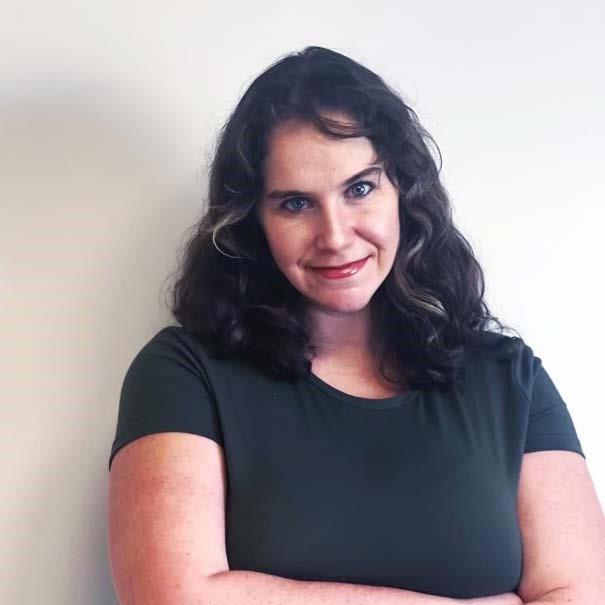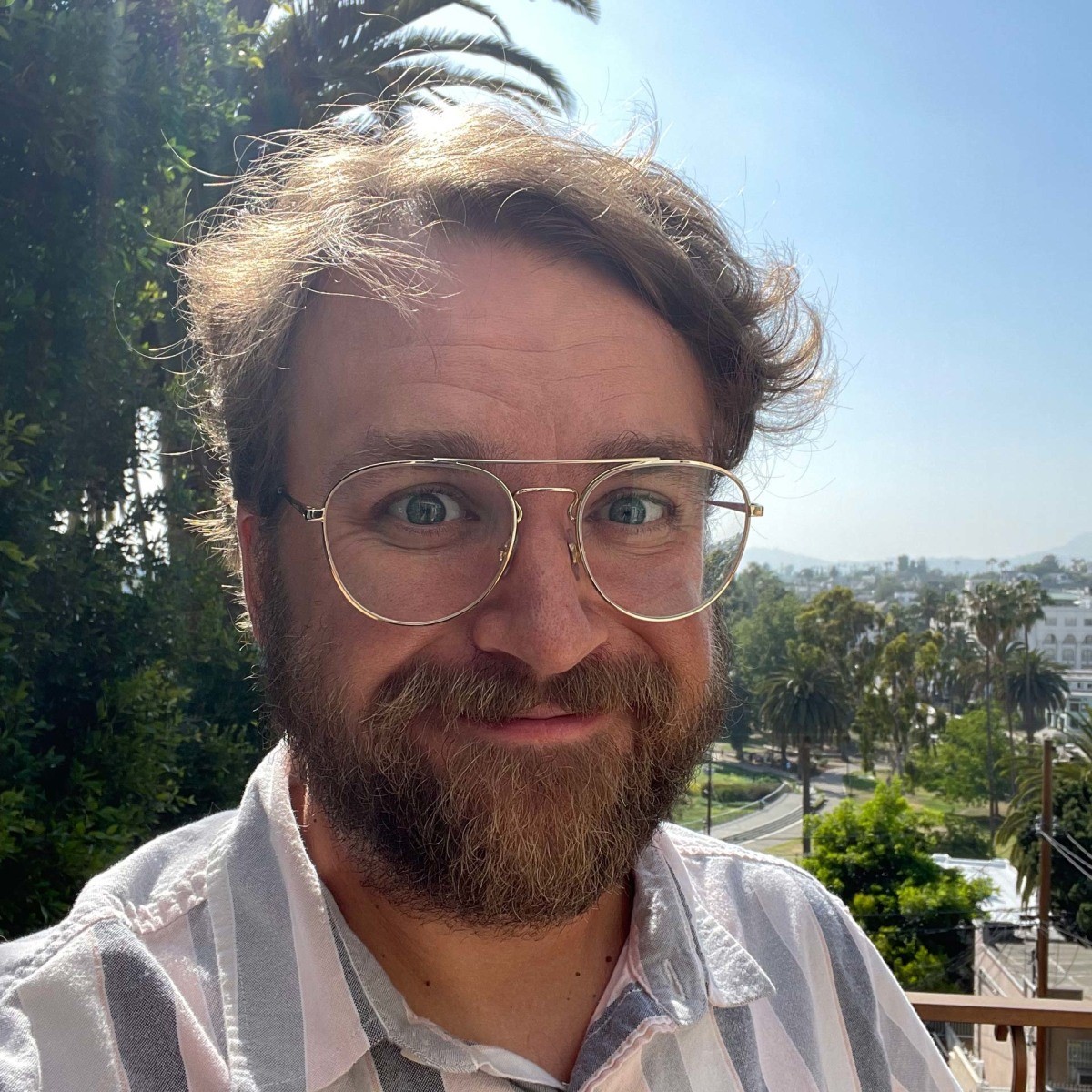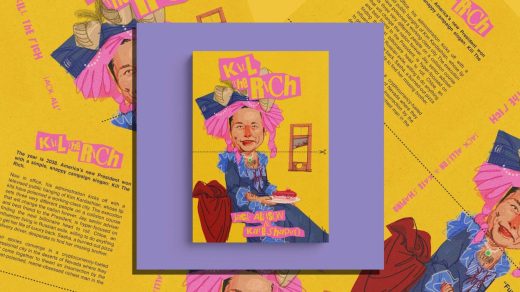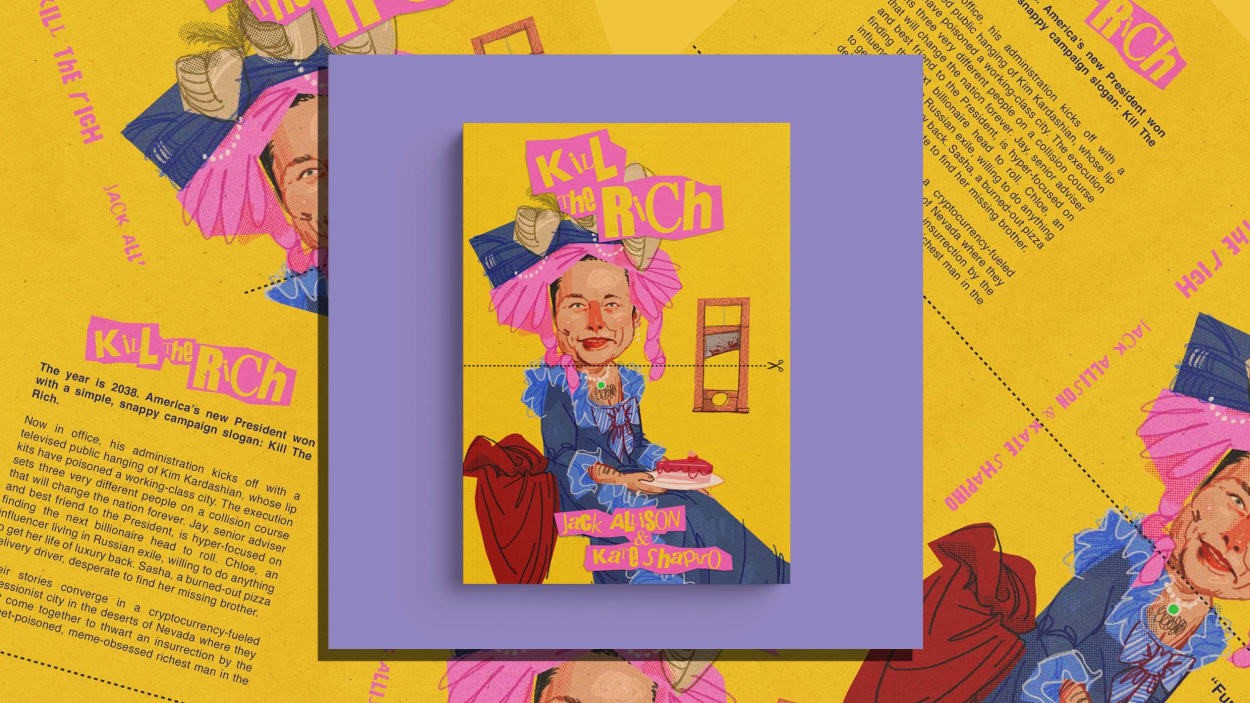Want to understand Elon Musk (and America)? This is the book to read—and it’s fiction
A provocative book title doesn’t always telegraph to readers what awaits inside. When it comes to those self-help books that include a naughty little swear on the cover, for instance, readers know to expect a heaping spoonful of spice to go along with the rote advice.
With a title like Kill the Rich, far more possibilities abound. Thankfully, authors Jack Allison and Kate Shapiro open their joint novel with the televised execution of Kim Kardashian, leaving zero room for misinterpretation. At that point, readers might (correctly) expect that the title is actually among the least provocative things about this book.

Kill the Rich is a work of speculative science fiction that feels meticulously tuned into the moment. It takes place in 2038 America—a nightmare of surveillance, privatization, and whatever comes after late-stage capitalism. It’s the least free version of freedom imaginable. Corporations have their own mercenary shock troops, Democratic and Republican parties have united into a single unit of “conventional wisdom” and “sensible politics,” and New York Times columnists are still posting Parks and Recreation gifs on Twitter. The authors then throw into this stew a maniacal, terminally online billionaire—who might seem a little familiar from real life—on a quest to assassinate the communist President of the United States, and let it all simmer.

What stands out most about the book is its scorched-earth approach to satire. There is not one worldview or way of being that escapes the authors’ acid pen. But sometimes, it can be a lot more illuminating to see society fully excoriated than to hear someone’s theoretical optimistic pitch about how to fix it.
Fast Company caught up with Allison and Shapiro earlier this week to chat about the world’s richest person, good billionaires, predicting the future, and more. This conversation has been edited for content and clarity.
Fast Company: Some of the stuff in this book is rather far-fetched, and some of it is barely exaggerated at all, while still coming across as absurd. Tell me about your approach to satirizing a corporate consumerist culture that already feels like a parody of itself.
Jack Allison: The book is out now, but we did write it in early 2022. So some of these things have been in the news since then. We have a character who’s a technologist billionaire who makes his own secessionist city, and then Elon Musk announced he was going to make a secessionist city for his workers in Texas. So some of the things that are barely far-fetched in the book seemed a little more far-fetched when we were writing them a year and a half ago.
I read an Ursula Le Guin quote recently where she said science fiction is not predictive, it’s descriptive. The book takes place in the future, but we were trying to show the world and America as it is in its absurdity today.
Kate Shapiro: When we first started writing, it was only four years in the future. Then we were getting into who’s gonna win the next election, and that’s going to be a whole thing. If it’s 15 years in the future, we don’t have to worry about that. We don’t have to walk the line between what’s real and what we’re making up.
FC: “Berkshire Hathaway’s Meta,” from the book, that makes more sense now than just the idea of something called the metaverse still existing in the world of the book—and that changed over the course of your writing it. When something like the Elon jet tracker [controversy] happened in real life, were you calling each other on the day about putting it in the book?
JA: We’re just trying to reflect the world as it does exist. You just pull from the ephemera of how truly absurd the world is. But you’re also going based on plot, so we’re not going to squeeze in something like the flight tracker unless it is useful for where we are in the story that we’re telling. Kate would often text me a news story and be like, ‘this is Kill the Rich content.’ But when we were writing the story, we weren’t so pulled by the news to change plot directions.
FC: I just kept wondering as I was reading, are these two eerily prescient? Or is some of this stuff just becoming predictable? I don’t know where I landed on that.
JA: You should land on eerily prescient because that makes us sound more impressive as writers.
FC: There’s a lot more going on in the book than the technologist billionaire character Willem Loots and any resemblance he may have to Elon Musk, but Musk is so prominent [in society] and such a ripe target for a book like this, because he is at the nexus of so many of the book’s themes. Is there one aspect above all about Musk that drew you to him as a source of inspiration?
KS: He’s a con man, I think that’s what the main thing was. I always thought he was interesting because most of his job is conning the government out of money. That’s most of what SpaceX and Tesla [do]. That’s how they got started. When we were thinking of Lootstown, we wanted something that looks beautiful, but underneath it, Is it beautiful? Or is it crumbling? Is it fake? Or is it something else? What is the veneer of it?
For as many people who hate him, there’s just as many people who love him. He’s made himself out to be this genius innovator—I’m taking everyone to Mars—but underneath that is, I am conning the government out of money. I break everything that I touch for the most part, and the thing I’m good at is branding and making things look beautiful. What is Tesla other than a pretty car with the brand attached. There’s a lot of other themes in the book that [explore] the veneers of things. He’s very representative of that and the general problem that we have with American billionaires.
JA: What also drew us to him a bit is that he’s so representative of the sort of scam world that we live in modern America, with venture capital funding and just the appearance of success is success unto itself. But one other thing—and this was less apparent to the general public back in 2022 when we were writing—is that he’s a weird internet guy. He’s a weird, shut in, odd, Reddit guy, and that intersection of being so representative of what’s wrong with modern day American capitalism and also being like a gross little Rick and Morty fan, irritating person really drew us to him as a villain for this book.
FC: If Musk had never gone full mask-off mode and been less publicly obnoxious in general, he might have maintained his mythology much longer. Do you think the takeaway from what is happening with his reputation—for his peers and people who want to be like him—will just be to keep a lower profile? Or to actually do things differently and learn from his failures?
KS: I was reading a review of the Elon biography, and [author] Walter Isaacson was just like, yeah, he’s an asshole, and he’s crazy and erratic, but maybe that is the reason he’ll take us to Mars. Because he has the guts to have the bad ideas. There are a lot of movies about [people like that], like Oppenheimer. I love that movie, but it was like, This guy’s an asshole and a womanizer, all these bad qualities. But look at what he builds!
JA: I do believe, as Isaacson does and as Elon does, that Elon probably can get people to Mars . . . to suffocate to death on the surface of the planet.
FC: Your book, in part, feels like a necessary corrective to the idolatry of innovators that Musk (and his biography) represent. Are you seeing signs anywhere else in popular culture that people are starting to catch up to the con and be over it a bit?
JA: Musk is a big one and how much the public has turned on Musk and how much the emperor has no clothes around that. You have to wonder if people that drive Teslas feel embarrassed about it or if they don’t follow the news that closely.
But the other big one was the whole Theranos thing. That was, for me, the first big crack. They can’t just do everything over there [Silicon Valley]. I guess Sam Altman is the big face of AI, but the general reaction to AI, the normal human reaction, is, this is horrifying. Then also Mark Zuckerberg involving himself in the innovator clown sphere trying to fight Elon Musk. The more you give these guys rope, the more they’re just clowns.
KS: And SBF’s arrest and crypto circling the drain. They were like, We’re gonna democratize money. Look what the banks did to us in 2008. You can debank yourself. We’re all connected to each other and a community. That was all bullshit so people could steal from those people. I know people who are now going through personal bankruptcy because of Celsius— not the energy drink—and BlockFi and all of that.
JA: Honestly, it’s interesting to think about [whether] the age of the innovator is coming to an end. I can’t even think of someone who’s held in the regard of being one of these innovator gods the way that Elon was a couple of years ago, or that SBF was. More and more it feels like a public relations ploy that people don’t buy quite as much anymore. Even entertainment, people used to revere Bob Iger, and he’s made big missteps during the strike. I can’t think of any innovator titan of industry where people are still buying the bullshit.
KS: I was at a venture capitalist conference last week—for work, I promise—and the ideas that people were pitching me, I’ve either already heard of this idea or this idea is a crime, like literally fraud. Or this idea is just an easier way to deliver something that already exists. All these ideas were not very interesting. But they all thought they were, and they are all getting money from people, like a lot of it.
FC: There are so many shitty ways to be a rich person, many of which are explored in the book. All rich people are politicians is something one character says at one point. Is there a positive example of a rich person that you can think of? And if not, what might that even look like?
KS: I’m a [Dallas] Mavs fan, so I’ll say I like Mark Cuban. I know nothing about what he does other than that. He’s the owner of the Mavs, and he’s a good owner because he goes to every single game and it seems like he really cares. I hate to say this, I feel like such an asshole. I’m sure he does many horrible things, but that is one billionaire I will not kill in our books.
JA: I really don’t know. It depends on what you mean by rich, and if we’re talking about the level of rich that we’ve been talking about in this conversation—the actual super wealthy; sorry, Kate, even the Mark Cubans of the world—I really don’t know that there is a way to be a good rich person. In a just world and in a society that is the best that we can imagine, these people wouldn’t exist.
FC: One of the bits of information that come at you in the book in kind of a Paul Verhoeven style that shows how we receive information in the future is part of a Washington Post article. And then if you would like to read more of this article, you have to subscribe to Amazon Prime. I guess I’d kind of forgotten to even think anymore about how the guy who owns Amazon also owns the Washington Post. Is part of what gets us to this grim satirical future just the way we get so used to living with these things that seem wrong when they first happen?
JA: I mean, look, we already fucking live in Robocop [since] you bring up [director] Paul Verhoeven. That was only in the ‘80s. Everyone thought, what an insane view of the future . . . that really is quite familiar if you watch that movie today. The police kind of look like robocop at this point, because they’re covered in so much gear. I do think that it is death by 1,000 cuts, and it’s a matter of degrees and everything changing so gradually over time.
The world is not going to get less crazy. The people that were born after 9/11 are going to be voting in presidential elections. Then we’re gonna see culture completely controlled by people who grew up on TikTok, so the world is not going to get less weird.
FC: You dedicated the book “To the 1%, may you live long and healthy lives.” Is that a fig leaf against being accused of wanting to kill the rich for real, or is that sort of mocking that idea?
JA: Why, do you think that that will hold up in court? [Laughs] I think that it was a funny dedication for the book, but also, if any one percenters read it and are so inclined to give me any of their money, I’d be very, very happy to take it.
KS: Yeah, there are certain people when they read the title of the book and like learn more about it, there’s like a hush amongst them. And I have to say, you’re not rich enough. This isn’t a manual, but, like, don’t worry, you’re not rich enough. Then they get offended in a whole different way.
(12)



